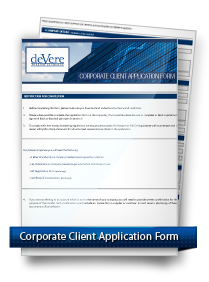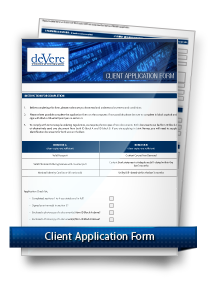
FAQs
What is a currency transfer?
A currency transfer is a currency contract which is simply an agreement to buy or sell currency.
What is a forward contract?
A forward contract is a deal between two parties, to buy or sell a particular currency on an agreed date in the future, at a rate agreed in the present.
The present rate, also known as the forward rate, allows investors to take advantage of favourable exchange rates of up to 2 years before the client actually needs to send or receive the particular currency.
What is a spot contract?
A spot contract enables the client to buy or sell a currency for immediate delivery; it is ideal if you wish to make a fast transfer, and thus benefit from an excellent exchange rate. The “spot” price is the live rate that is available in the interbank currency market.
What are the different types of orders?
Exchange rates fluctuate constantly and can be difficult to predict, so as well as simply buying at the current rate, deVere Foreign Exchange offers the following order types to help you make the most from your transaction. This is particularly relevant to clients who have a strong view on future exchange rates.
1. Buy Now
This is the simplest and most commonly used order type. This means that the client simply decides when they wish to buy or sell currency.
2. Limit Order
A limit order is an order that is assigned to the deVere Foreign Exchange trader to buy a currency at a pre-determined market level (i.e. better than the current rate). deVere Foreign Exchange traders will then monitor the order 24/7 and the currency is purchased automatically when the client’s desired target level is achieved.
3. Stop Loss Order
A stop loss order allows the client to set a minimum rate at which they wish to buy their currency. This would effectively be the worst acceptable exchange rate. Therefore, if the market falls to this rate, the currency will be purchased automatically. This gives the client peace of mind that they are protected from any significant decline in the exchange rate.
This strategy therefore guarantees that the exchange will be made within a certain price range. Orders can be adjusted or cancelled at the client’s instruction at any time prior to being fulfilled.
What is the deVere Foreign Exchange Regular International Payments service?
The deVere Foreign Exchange Regular International Payments service is ideal for those who have a requirement to send a regular fixed amount overseas, with minimal hassle and expense. deVere Foreign Exchange will buy the currency each month for you and send it to the nominated account.
How do I protect myself against exchange rate fluctuations for regular payments?
The deVere Foreign Exchange Regular International Payments service is a highly cost-effective and simple way to send money abroad on a regular basis. This service is made for regular transfers of between £500 and £10,000 per month, over a minimum period of 6 months.
The deVere Foreign Exchange experts would suggest that using the Regular International Payments service has proven to be more cost-efficient, rather than choosing a fixed rate using a forward contract.
Why use a foreign exchange broker rather than the bank?
Banks have the ability to wire money from one country to another by changing the currency of the money in the process. However, banks use their own exchange rate, which will not be as good as the rate you could get from a specialist foreign exchange broker.
Furthermore, the process takes a few days to complete, meaning that you cannot pick the rate you want. Banks may also charge hefty amounts for these transactions, and some countries put restrictions on the amount that can be exchanged in one transaction.
Undoubtedly, using a specialist foreign exchange broker is a more efficient and economical way of changing your money from one currency to another, as they will offer you better rates than the banks, as well as providing expert advice on when it is best to exchange the currency.
How do foreign exchange brokers profit?
Currency brokers are able to secure rates that are not available to the general public by buying large volumes of currency directly from the money markets. The profit they make comes from the small margin between the rate at which they buy the currency from the market and the rate at which they sell it.
What is deemed acceptable photo identification for the application process?
The identification document must be a picture ID. It must be clear, valid, include date of birth, issue and expiry date, full name, ID number & signature. We accept passports, picture driving licences and government issued ID cards.
What is deemed acceptable proof of address for the application process?
Proof of address needs to be in the name of the client and include the client’s first name or initial. It needs to be readable and show an issue date within the last 6 months. PO Box addresses are not acceptable. We also do not accept insurance letters, mobile phone bills or reminders.
We do accept bank statements, gas, water and electric bills, broadband and cable TV bills & tax bills. We accept driving licences, but not if it has been used as ID. If you are using a driving licence as proof of residency, it just needs to be valid, not necessarily issued within the last 6 months.
There may be some rare occasions when the client resides in what is classified as a ‘medium-risk’ country. In such cases, we will require a government-issued proof of residency which would include a tax bill/letter, driving licence, letter from the municipality or residency card.
What documentation is required to open a dVFX corporate account?
- Current copy of Certificate of Registration
- Signatures of all authorised persons
- Valid and certified copy of Passport/ID Card of all authorised persons
- Certified copy of Passport/ID card of the beneficial owner(s) (All person holding a controlling interest of more than 25% of the capital)
- Copy of Approval of Regulation
- Copy of Articles of Association
- Source of Income
- Background of the company
- An recent extract from the trade register or any other official document that proofs the incorporation and the legal status of the company (nationality, legal form) including details on the name of the directors and managers and the provisions governing the power to commit the entity as well as the address of its registered office.

